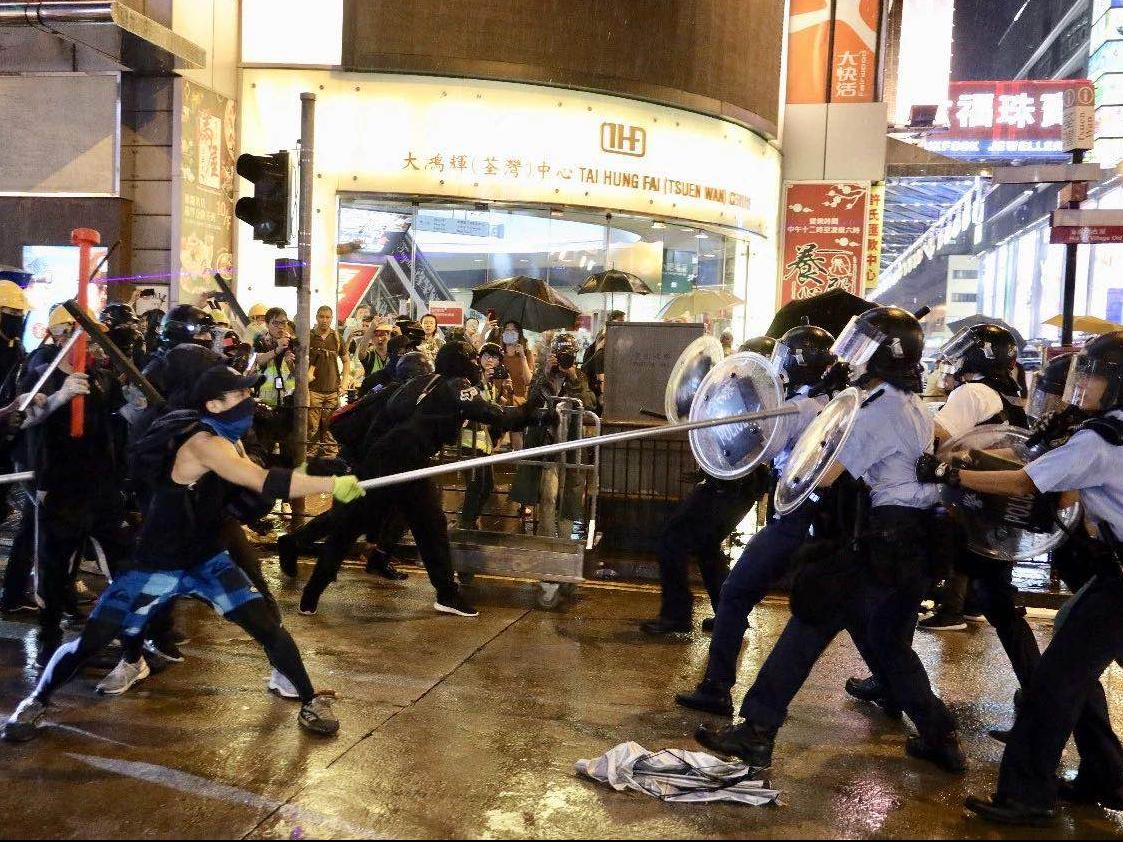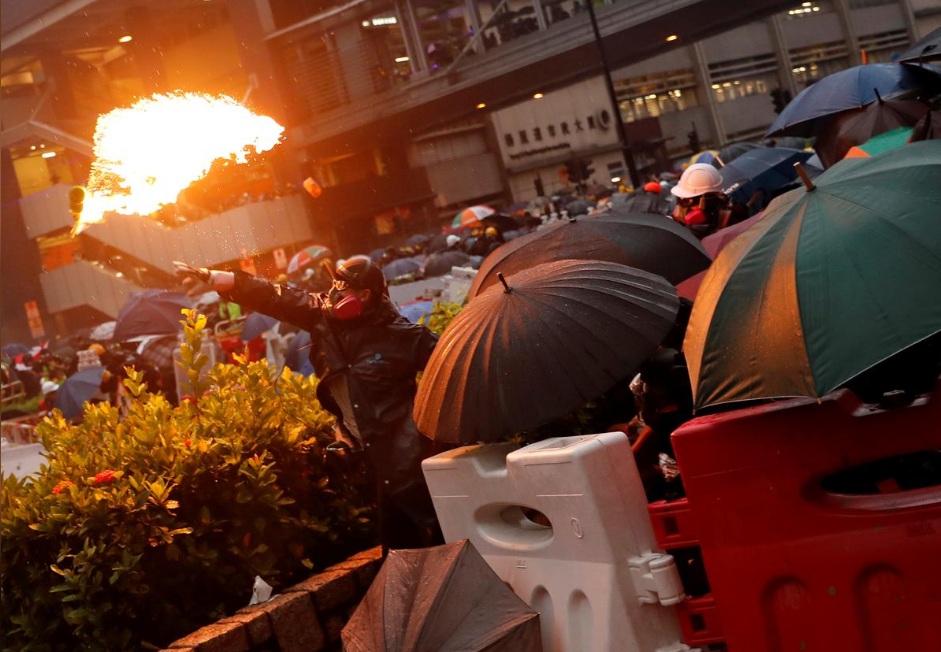

Editor's Note: Tan Huizhu is deputy director of the Basic Law Committee of HKSAR of the Standing Committee of the National People's Congress and vice president of the Chinese Association of Hong Kong & Macao Studies. This is the second part of an edited translation of a Chinese-language article first published by People's Daily on August 30. The article reflects the author's opinions, and not necessarily the views of CGTN.
The role of the Hong Kong garrison
When Deng Xiaoping met with the delegation for National Day celebrations in 1984, he made it clear that the garrison in Hong Kong is not only the symbol of China's restored sovereignty over Hong Kong, but also serves the purpose of "preventing disturbances." He added, "Knowing that there were Chinese troops present, people who intended to incite disturbances would have to think twice about it. And even if there were disturbances, they could be quelled immediately."
There is a saying that the employment of the garrison means the end of "one country, two systems." What a ridiculous idea! Both Article 14 and Article 18 of the Basic Law clearly state that the Government of the Hong Kong Special Administrative Region may, when necessary, ask the Central People's Government for assistance from the garrison in the maintenance of public order and in disaster relief. The Hong Kong garrison is not a scarecrow. Instead, it is an important military force to secure the "one country, two systems" principle.
When the Hong Kong is in turmoil, the central government shall certainly intervene, to end chaos and to restore law and order so that "one country, two systems" is rightfully honored. For this, Deng Xiaoping stated, "First, the administrative bodies in Hong Kong should intervene; mainland troops stationed there would not necessarily be used. They would be used only if there were disturbances, serious disturbances." Serious disturbances refer to situations that the Hong Kong SAR cannot control. Neither could the local police force. Then the garrison could be used. As Deng Xiaoping went on to say, "Anyway, intervention of some sort would be necessary."
It is important to make it clear here that the work of the Hong Kong Police is to maintain social order in accordance with the law. The people of Hong Kong should understand if the police cannot maintain Hong Kong's law and order, Hong Kong will be pushed to the brink of great danger. The best approach to take is to adopt a cooperative attitude to reduce losses and confrontation and allow Hong Kong to restore public order and peace as soon as possible.

Protesters clash with the police in the Hong Kong SAR, China, August 25, 2019. /CCTV Photo
Where is the future?
In 1987, when Deng Xiaoping met with members of the Hong Kong Basic Law Drafting Committee, he spent lots of time in talking China's development goals. He said that China's GNP per capita would reach 800-2000 U.S. dollars by the end of the 20th century, and thus it would reach 4,000 U.S. dollars in the middle of the 21st century, making China a moderately developed country.
He also talked on the conditions to achieve these goals, "First, China needs political stability… because China could not afford any more disorder or unrest. We must put the overall national interests above all else. The key to China's development is political stability. The second condition is that the current policy must remain unchanged. As I have just said, the importance of that can be seen from the goals we have set for the next few decades."
The "policy" he mentioned at the time was China's reform and opening-up policy. For him, only when the country's political situation is stable and its policy is consistent, can we "encourage people to use their heads and find ways to develop our economy in a pioneering spirit. We should not dampen their initiative; that would not be good for us." Deng's talk is well suited to the current Hong Kong situation, isn't it?

Violent protesters throw petrol bombs at police line during a demonstration at Tsuen Wan in Hong Kong, China, August 25, 2019. /Reuters Photo
Deng Xiaoping also spoke on the basic law and Hong Kong's future, "Hong Kong's system of government should not be completely Westernized; no Western system can be copied in total. For a century and a half, Hong Kong has been operating under a system different from those of Great Britain and the United States. I am afraid it would not be appropriate for its system to be a total copy of theirs with, for example, the separation of the three powers and a British or American parliamentary system. Nor would it be appropriate for people to judge whether Hong Kong's system is democratic on the basis of whether it has those features… Would it be good for Hong Kong to hold general elections? I don't think so." The system that Hong Kong needs should be a system that suits it best, and a system that takes care of the interests of all walks of life.
If Hong Kong is to become a better capitalist society, it has to find solutions to the deep-seated social contradictions, taking into account the interests of all walks of life, so that everyone in Hong Kong are benefited in its economic progress.
For this reason, Hong Kong has to end the current turmoil and restore law and order as soon as possible. Then, Hong Kong needs to find a way which suits Hong Kong the best in its development, and to address the root causes of society's problems that are left from the past. That is, Hong Kong's future lies in its ability to treat those deep-seated problems and their manifestation.
(If you want to contribute and have specific expertise, please contact us at opinions@cgtn.com.)

Copyright © 2018 CGTN. Beijing ICP prepared NO.16065310-3
Copyright © 2018 CGTN. Beijing ICP prepared NO.16065310-3